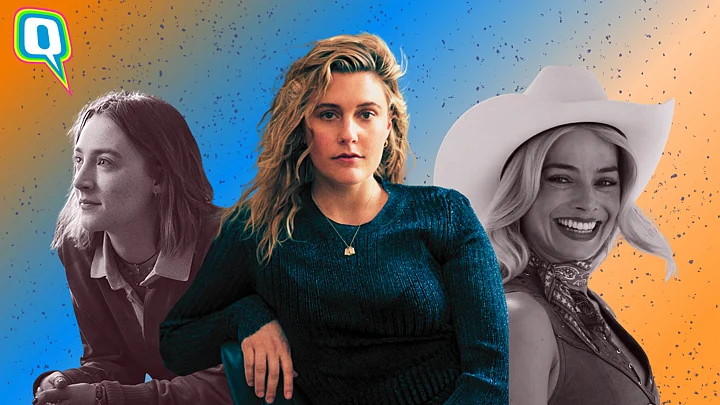Greta Gerwig, the multi-hyphenated artiste who's taken cinephiles by storm, initially made her mark in Hollywood as an actor and writer within the 'mumblecore' genre.
But, what does 'mumblecore' mean?
A subgenre of independent filmmaking characterized by low-budget productions and an emphasis on intimate, character-driven storytelling, the term, 'mumblecore' was coined in the early 2000s. Dialogues in these films tend to be unscripted or loosely scripted, leading to a conversational, authentic, and sometimes awkward tone, from which the genre derives its name.
Gerwig emerged as a prominent figure in the genre due to her ability to embody the essence of the ’mumblecore’ characteristics. While her acting performances had an authentic and unpolished quality which resonated with the genre’s aesthetic, her screenplays delved into nuances of the human experience.
A standout film that solidified Gerwig's niche in the mumblecore genre was Frances Ha (2012), where she starred as the titular character and also co-wrote the script with her spouse and filmmaker, Noah Baumbach.
However, it was when Gerwig stepped into the director's chair that her glorious genius as a filmmaker was fully revealed.
The Rise Of Gerwig, The Director
Gerwig's directorial debut, Lady Bird (2017), proved to be a turning point in her career. This small-budget coming-of-age gem captured the hearts of audiences and critics alike, as it delicately portrayed the struggles of a high school senior (Saoirse Ronan), navigating her way through teenage, and her turbulent relationship with her mother (Laurie Metcalf).
Gerwig's poignant storytelling and intimate exploration of mother-daughter dynamics resonated deeply with audiences, earning her an Oscar nomination for Best Director — an award only three women have bagged, as of yet.
Scaling New Heights
For her second, Gerwig embarked on a remarkable journey to adapt Louisa May Alcott's classic, Little Women (2019), for the big screen. The film boasted an impressive ensemble cast, including Laura Dern, Timothée Chalamet, Florence Pugh, Emma Watson, and Saoirse Ronan once again. Gerwig's vision breathed new life into this beloved tale of sisterhood, love, and ambition.
Her ability to infuse a classic with modern relevance and authenticity demonstrated her deep understanding of the female experience and cemented her status as a formidable director.
A Household Name Overnight
Gerwig's reputation skyrocketed to new heights with her latest directorial, Barbie (2023). Gerwig took a beloved cultural icon and crafted a thought-provoking tale of gender dynamics, patriarchal oppression and the commodification of female representation.
The film has proved to be an unexpected global sensation, grossing over $500 million worldwide within just one week of release.
Not only has Barbie catapulted Gerwig into a household name, it’s also become the biggest female-directed film of all time.
In Greta We Trust
Gerwig's body of work is cemented on a common ethos: her films are love letters to the various shades of womanhood, while also exploring the intricate dynamics between mothers and daughters.
In Lady Bird, the mother-daughter relationship is treated like an open wound: sporadically painful, yet healing over time.
Greta's portrayal of vulnerability and growth in both Ronan and Metcalf’s characters speaks to the shared experiences of mothers and daughters everywhere.
Little Women is an ode to the unadulterated love between mothers and daughters, celebrating the strength and resilience of female bonds. By weaving together themes of ambition, sisterhood, and self-discovery, Greta crafts a heartfelt and emotionally resonant narrative that honours the timeless nature of the source material, while infusing it with her distinct perspective.
With Barbie, Gerwig catches you off-guard - offering the most honest glimpses of mother-daughter ties, when you’re least expecting it. In one of the last scenes of the film, Ruth Handler (the inventor of Barbie) walks Margot Robbie’s character through a life-altering decision.
After revealing that she named Barbie after her own daughter, Barbara, she holds her hand and says, “Mothers stand still, so their daughters can look back to see how far they've come.”
Set to Billie Eilish's heartwrenching vocals, a montage ensues, showcasing home-video footage of mothers and daughters, basking in sheer feminine joy.
Even in an event film for Mattel’s iconic Barbie doll, Gerwig delivers a poignant testament to the beauty and complexity of the fundamental relationship women share.
